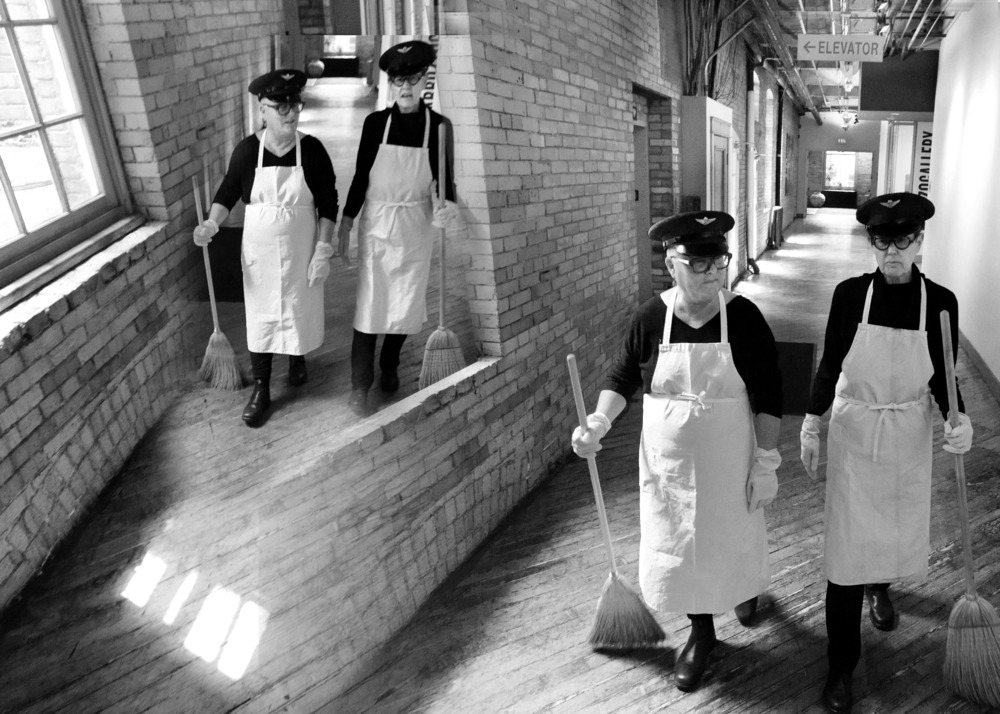
GENERAL(S) LABOUR
first performed on May 25, 2019
The Roastery Coffee House, Toronto, Canada
performed once in 2019
ARTIFACTS
Pam Patterson, Leena Raudvee
Toronto, Canada / Picton, Canada
760272238l760272238r760272238a760272238u760272238d760272238v760272238e760272238e760272238@760272238g760272238m760272238a760272238i760272238l760272238.760272238c760272238o760272238m
artifactsperformanceart.ca
GENERAL(S) LABOUR
ARTIFACTS
The Backstory:
Patterson and Raudvee first met in 1938 fighting with the International Brigade against Franco. Patterson had run communications during the Irish Civil War in the 1920s and when the civil war erupted in Spain, she crossed the Irish Sea traveling alongside the antifascist Limerick Brigadistas. Raudvee, a member of the Estonian intelligentsia, had been living in Paris at the time and actively involved with the international artistic community. After Spain, they both returned to Europe. In 1941, Raudvee, though, was drawn back briefly to Estonia to work with the underground during the Nazi occupation. It was an exciting and challenging time for both women but they were frustrated and broke. Reconnecting in Paris during WWII—and after a long night of drinking—they decided on a lark to disguise themselves as men, emigrate to Canada, and join the Canadian military. They quickly rose through the ranks eventually both becoming generals in their sixties. They excelled as pilots navigating the rugged coastal waters of the Maritimes and were decorated for brawn and bravery in 2017 when they were both 100 years old!
The Performance:
Times being as they are, work is scarce, pensions nonexistent, especially for two women Air Force generals. Awarded as fearless revolutionaries in the early 1900s, valiant Air Force pilots in WWII, and heroic leaders in the Canadian forces, they have been forced, through political exigency, to labour in obscurity sweeping floors and cleaning tables in a Toronto cafe.
In “General(s) Labour,” ARTIFACTS conflates the domestic and the larger notion of women’s labor in relation to class, gender, ageism, and the military with the work of an artist. But what, we ask, are the more complex issues at play?
We live in a time of fake news, of absurd political obfuscation, of wider gaps between minimum wage earners and those who are privileged and financially secure. How, we ask, can the generals, performing as café cleaners and as cultural producers, playfully uncover some of these issues? How can ARTIFACTS be both fictitious characters and reflective makers? We flip between these two roles illustrating and engaging these questions with each other and our viewers.
In process and practice, we, as ARTIFACTS, intentionally pose a problem, a question, to stimulate action and reflection. Dialogue between ourselves and among others is our act of creation.